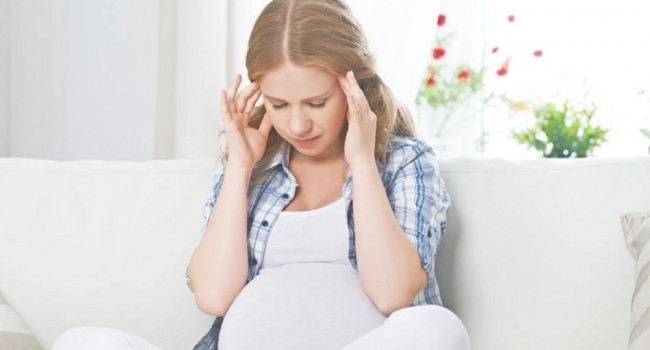Introduction
Knowing about the best time for a pregnancy test and Early Signs of Pregnancy First 2 Weeks is crucial if you want to know whether you are pregnant or not to prevent finding any misleading results. Early pregnancy symptoms could be missed periods, nausea, blood spotting, vertigo, and fatigue.
Am I pregnant? The answer to this question could vary from person to person as every person experiences different symptoms. The best way to find it out is by taking an early test after one week of missing your period.
What is the Best time for a Pregnancy Test?
Early Morning is the best time for a pregnancy test is one week after a missed menstruation. Even though the body needs time to raise its levels of HCG ( human chorionic gonadotropin), certain tests can identify pregnancy as early as 1-2 weeks after sexual intercourse.
However, testing before a missed period can make it more likely that the results will be falsely negative. Some tests claim to give an accurate result before missing your period, but you may get a false negative pregnancy test. So the best time for a pregnancy test is after one week of missing your period is better.
What Hormone Level does a Pregnancy test check?
HCG level rises very quickly in the early stage of pregnancy, and it changes its level with every passing day. A test works by identifying an elevated amount of HCG in urine.
How does a Pregnancy Test work?
You can perform your pregnancy test at home by dipping the test kit in urine. The test kits work by detecting the Human Chorionic Gonadotropin, a hormone only present in pregnancy. Right after you are pregnant, Human Chorionic Gonadotropin is produced by the placenta when the embryo is attached to the uterine wall.
After 12 to 15 days of ovulation, if you have 28 days of the menstrual cycle, HCG (Human Chorionic Gonadotropin) will rise, and you might be pregnant if you see one or two lines of a plus or minus sign on your kit.
At What Time Of Day Can I Take The Pregnancy Test?
To some extent, the time of taking your test does matter; this decreases the chances of a false negative result if you are taking the test early in the morning, especially if you are a few days late on your period.
Take your pregnancy test early in the morning because, in the morning, the level of HCG is concentrated due to less water intake and urination because of sleep. However, taking your test only in the morning is unnecessary; you can still take your test at any time.

Early Symptoms
What are the Early Signs of Pregnancy First 2 Weeks?
Every woman experiences different early symptoms of pregnancy, just like your periods, as everyone has a different cycle. Still, a few symptoms are commonly observed in early pregnancy days that could help determine your pregnancy or whether you should take a pregnancy test.
Missed Period
A missed period is an early symptom of pregnancy. It’s time to take a test for further precautions. A Woman’s body stops ovulation once conception has happened, and she won’t have her next period until her baby is born. If one week has passed after the period cycle date, it is the right time to take a pregnancy test.
Accessive Urination than Usual
Suppose you are experiencing more accessive urination than before. In that case, it might be an early symptom that you are pregnant because kidneys filter more blood in pregnancy produced in the body and pass out extra fluid that ends up in your bladder.
Sensitive Breast
Swollen or sensitive breasts could also be an early symptom of pregnancy; this happens because of hormonal changes in your body. Some women experience the sore breast at the early stage when they are pregnant, and it may go away in later weeks. It’s better to conduct pregnancy tests for further care.
You can experience nausea at any time of the day, morning or night. Nausea can occur in the early days of pregnancy between one to two weeks. Many women have nausea or blotted feeling with or without pregnancy.
Morning Sickness
If you feel discomfort, taking your pregnancy test would be good. Having nausea is an early symptom in pregnancy, but it could become a problem if you take less water and do not stay hydrated.
Feeling Tired
Fatigue or tiredness happens during the early days of pregnancy, most likely because of hormonal changes.
Light Bleeding
You might be among one-third of women who experience spotting in the early days of pregnancy. Light bleeding happens when fertilized egg attaches to the uterine lining.
Change in Areolas
The colour of the areolas, and the area around the nipples, gets darkened or wider if you are pregnant; this could also be an early pregnancy symptom. However, this could easily overlap with a sign of monthly changes in your body because of the period cycle.
Conclusion
If you are pregnant, you experience different symptoms, including a missed period, increased urination, sensitive breasts, fatigue, morning sickness, spotting, and change in areolas that could be early pregnancy symptoms.
The best time for a pregnancy test is after 1-2 weeks of a missed period to confirm your pregnancy. Taking your test earlier increases the chances of getting a false negative pregnancy test.
Q 1 When is the best time to get a positive pregnancy test?
If your period is one or two weeks late, it is the best time to take your pregnancy test.
Q2: What time of day should you take an early-detection pregnancy test?
You should take your test early in the morning. Take your pregnancy test early in the morning because the level of HCG hormone might be concentrated because of less water intake and urinating because of sleep.
Q3: What are the symptoms of pregnancy at 1 week?
- Missed period
- Accessive Urination than Usual
- Sensitive Breast
- Morning Sickness
- Feeling Tired
- Light Bleeding
- Change in Areolas
Q4: How long does it take for HCG to show up in urine?
Right after you are pregnant, Human Chorionic Gonadotropin is produced by the placenta when the embryo is attached to the uterine wall. After 12 to 15 days of ovulation, if you have 28 days of the menstrual cycle, HCG (Human Chorionic Gonadotropin) will rise, and you might be pregnant if you see one or two lines of a plus or minus sign on your kit.
















